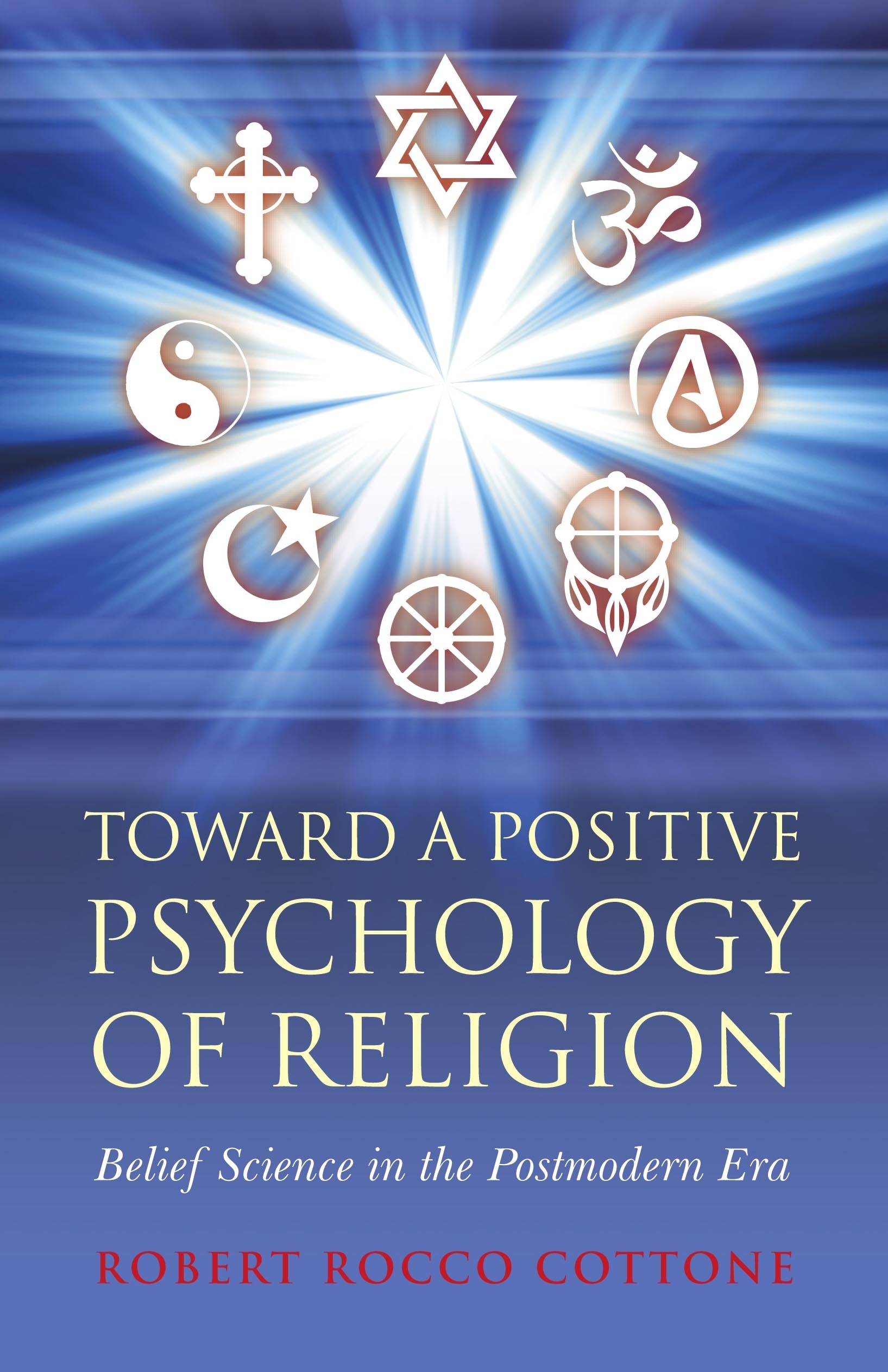|

|


| |||||||||||||||||||||||||||||||||||||||||||||||
| Book Excerpts |
Excerpts from Toward a Positive Psychology of Religion: Belief Science in the Postmodern Era, Copyright 2010 Robert Rocco Cottone. Published in 2011 by John Hunt Publishing, Ltd., of Hampshire, UK, under the imprint of O-Books. When an atheist dies, all that his or her atheist colleagues know with certainty is that his or her life is completely finished in this world. There are no alternative states of being—no heaven, hell, paradise or nirvana. There is no coming back through the lives of others. It’s over. The colleagues of the atheist know that the person no longer exists. This is their shared belief. As with all beliefs, it has validity within its community of believers. And if the atheist suffered a harsh life, one of pain and suffering, what reason was there to live? If an atheist experiences disability, a shortened painful life due to disease, the fate of the poor and downtrodden, torture or trauma, then what hope is there? The message that he or she carries forward is “This life is all there is.” And if one’s life is horrible, then suffering is the best that one can expect. One leaves no legacy for others in pain (especially children) when the message one carries is a message of no hope beyond suffering. Life is a one-way street. And for some of us, the street is a rocky road. Atheism leaves a legacy of despair for those who are the most unlucky among us. You live a painful life, and you die. Atheism, although vulnerable to a postmodern critique, does have its place. It will likely be attractive to relatively healthy, secure, modernist-thinking intellectuals and those who act outside of culturally imbedded moral standards. WOMEN, SOCIAL JUSTICE, AND RELIGION One should ask, "What are the values at the foundation of my religion?" If one cannot answer with the concept of social justice, fairness to women and children and people of every orientation or persuasion, then one must be willing to stand against oppression within one's religion or to affiliate with other religious people who will subscribe to a socially just position. That means, for instance, that women should be full partners in religious traditions and rituals--not standing behind some wall or barrier watching or submitting to men who have taken the leadership role and continue to make oppressive doctrine. If women are not involved at the highest level of religious decision making, it is likely due to oppression of women by the religion. Women should not be second class citizens in religion. UNDERSTANDING POSTMODERN RELIGION I have completely made the switch from viewing individuals and their concerns from the perspective of the psychology of the individual to viewing them as relational. I no longer see people (as odd as that may sound). When I look at someone, I see the embodiment of his or her parents' biological relationship. I see all of his or her social relationships reflected in dress, language, dialects, grammar, attitudes, and behavior. I see people as extensions of their biological and social networks. I view people as perceptual phenomena for the transmission of relationships. I see right through people (not literally) to the social and biological webs that connect them in the present and the past. And I see them with all of my relationships affecting my vision. The switch has gone off. There is no going back for me. I have been affected by the postmodern tidal wave--relationships are everything, and everything is relationship. I no longer view religion out of context. I see Jesus with his disciples embracing the ideals of the Jewish prophets. I visualize Buddha with his students arising from the traditions that came before. I imagine Muhammad with his people standing strong against aggression in the harsh environment of the Middle East. I imagine the Jewish prophets relaying their ideals to a struggling populace under rule. I see a Hindu guide communicating the message of Krishna to those who will listen. I imagine all of this because I have come to understand that truth derives from relationships. SCIENCE AND RELIGION Science is not about "absolute" truth. In science, truth is always from a particular perspective, and there are competing truths. The validity of a scientific truth is established by its enduring and useful application across observable phenomena. A scientific truth's veracity comes from people in relationships who apply the ideas or come together to challenge the ideas with new and revolutionary possibilities. Science, like all understanding, comes from people making distinctions and then acting around those distinctions. The postmodern revolution provides a means for understanding that all truths are in relationships, not outside. It is irrelevant whether we make a distinction that a truth is scientific or religious. All truth involves agreement among people who subscribe to the principles of the truth and follow the principles with action. Postmodernism proposes that the distinction between science and religion is just that--a distinction. But postmodernism also holds that the interpersonal processes--the actual social activities that occur in religion and in science--are the same. I no longer view science and religion in opposition. I think science and religion address different domains of human interaction distinguished historically by the terms "physical" and "spiritual," but they are both still within the realm of human relations. Where others distinguish religious versus scientific truth, I see only people in relationships. |
 |

|




